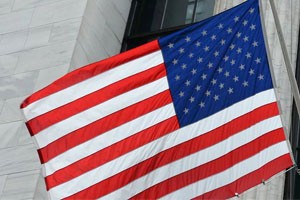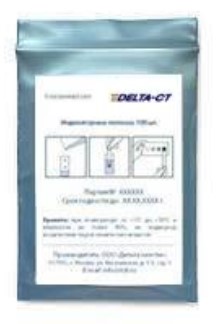Ukrainian companies asked to withdraw Russian assets frozen in the United States

More than a dozen Ukrainian companies formerly associated with businessman Igor Kolomoisky have filed a petition with the U.S. District Court for the District of Columbia to uphold a $35 million arbitration award against the Russian Federation in favor of these companies. A copy of the petition on behalf of the companies Stabil, Rubenor, Kirovograd-Nafta, Krym-Petrol, and others, filed with the court on April 9, is at the disposal of RBC (obtained through the official US judicial database).
Kolomoisky’s structures v. Russia in international arbitration is one of a number of similar cases in which Ukrainian plaintiffs are asserting their claims for the loss of their assets in Crimea and Sevastopol as a result of the annexation of the peninsula to Russia in 2014.
In 2019, an arbitral tribunal based in Switzerland decided that Russiaexpropriated the plaintiffs' investments in the Crimean peninsula without compensation, thereby violating Art. 5 agreements between Russia and Ukraine on mutual protection of investments. It follows from the article that the assets of Ukrainian investors in Russia can be nationalized in exceptional cases with the payment of "prompt, adequate and effective compensation." The arbitration awarded the plaintiffs compensation in the amount of $34.6 million (not including penalty interest accrued from 2014 until the financial claims are fully satisfied) for the nationalization by local authorities of their property in Crimea, including 31 gas stations, a car park and real estate. At the same time, the arbitrators did not rule on the legality of the entry of Crimea and Sevastopol into Russia, since this was not necessary for the purposes of resolving the investment dispute.
In theory, all final awards of international arbitration courts should be automatically recognized in all 150-odd countries participating in the New York Convention on the Recognition and Enforcement of Foreign Arbitral Awards of 1958 (both Russia and the United States are parties to the convention). This is necessary so that if the losing party refuses to pay compensation, the winning party can seize the defendant's foreign property for the purpose of further sale at auction. In practice, the decision on recognition is made by a national court (in this case, an American one), and the defendant has the right to seek non-recognition of the foreign arbitral award.
Lawyers assured the court that Russia's assets in the Yukos case are in the United States Economy
Recovery through sanctions
As a rule, in such claims, the injured investors try to foreclose on the assets of the respondent state that are not protected by diplomatic immunity. In this case, the plaintiffs' lawyers stated that they had chosen a different strategy. James Boykin, a partner at law firm Hughes Hubbard & Reed, who represents them, said the freezing of Russian assets under recent US sanctions provides a chance to recover the compensation awarded to them from the frozen assets, Reuters reported (RBC sent a request to a lawyer). The administration of US President Joe Biden did not disclose how much Russian assets have been frozen in US jurisdiction since the end of February as a result of sanctions that have extended, among other things, to Russian state-owned banks and state corporations (VEB.RF, VTB, Sberbank, etc.).
Read on RBC Pro Pro You have moved abroad.What laws of your country are dangerous to forget Articles Pro How gas export for rubles will affect investors:analysts' opinions Articles Pro "Now Russia is Crimea":experience of business development under tough sanctions Forecasts Pro How the elections in France will affect the stock market and currency ForecastsPro Assemble the headquarters and fire the slackers: what should a top manager do in a crisis Instructions Pro Will diapers become a luxury:forecast for the baby hygiene market Articles Pro Harbingers of dismissal: how to understandthat they are ready to say goodbye to you Instructions Pro Where to transfer advertisements from closed social networks InstructionsThe scale of the new blocking of assets is indicated by the message of the European Union, according to which, as of April 8, European countries have frozen the assets of Russian and Belarusian "oligarchs" and companies in the amount of €29.5 billion. aimed at paying compensation, confirms the American trade publication Law360.
Under US law, a foreign arbitral award must be confirmed by a US court unless the narrow enough grounds for setting aside the award under the New York Convention are satisfied. The burden of proof that any ground for setback should apply lies with the party that objects to the recognition of the award. RBC sent a request to the Prosecutor General's Office about whether Russia plans to participate in the American trial (the Prosecutor General's Office in 2021 took over from the Ministry of Justice the right to represent Russia in foreign and international courts).
In April filings for the US court, Hughes Hubbard's lawyers make no mention of their clients' ties to Kolomoisky. The decision of the arbitration court from 2019 (RBC has a copy) stated that Kolomoisky is the beneficial owner of the plaintiff companies. In 2021, the US State Department sanctioned Kolomoisky for involvement in "significant corruption", banning him from entering the United States, but the US Treasury did not freeze his assets.
Frozen reserves
Limited in use for Moscow were the foreign exchange reserves of the Russian Central Bank placed in the G7 countries, including the United States. According to Finance Minister Anton Siluanov, the West has frozen about $300 billion in Russian reserves. The US could account for about $39 billion, based on information from the Bank of Russia on the geographic structure of gold and foreign exchange reserves as of January 1, 2022, disclosed on April 11.
Kudrin said that Russia should seek to unfreeze the reserves of the Central Bank
Ukrainian officials have voiced the idea of forcibly using blocked Russian reserves as "reparations." However, any such use of official reserves would be legally problematic, Politico notes. “Foreign sovereign assets are protected by international law, and their confiscation will require the art of legal engineering, which has never been successfully applied before,” the newspaper writes. Western countries may also try to confiscate assets frozen through sanctions against wealthy Russians, adds Politico.
A potential recovery at the expense of the property of another state may violate the global concept of the jurisdictional immunity of the state, Mikael Vodomerov, a lawyer in the International Law and Taxes practice at the law firm Lemchik, Krupsky and Partners, commented to RBC. The practical implementation of a scenario that is negative for Russia will depend on what position the American authorities take and whether they plan to open the door for Russia to withdraw from the UN Conventions, the lawyer believes (any state can denounce the New York Convention by written notification addressed to the UN Secretary General. -).



























































